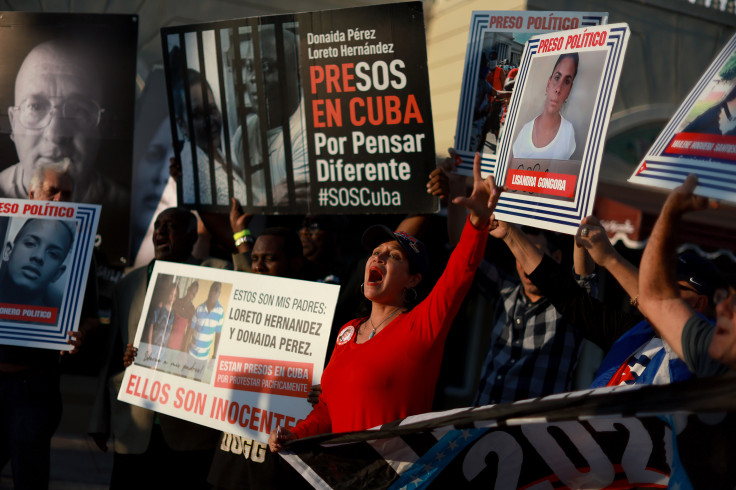
The Cuban regime started releasing political prisoners last week after President Biden removed the country from the list of state sponsors of terrorism. But as the new Trump administration reversed the decision this week, the Cuban government seemingly backtracked, kicking off military exercises and pausing prisoners' release.
The move didn't come as a surprise, as Trump had vowed to bring the designation back, and newly appointed Secretary of State Marco Rubio, hinted during his confirmation hearing that the administration planned to reverse the removal.
Cuban President Miguel Diaz-Canel called the moves "an act of arrogance and disregard for truth" in a Facebook post and said "the legitimate and noble cause of our people will prevail and we will once again succeed."
Biden's measures catalyzed a deal mediated by the Vatican, under which the Cuban government agreed to release 553 "prisoners." While it was unclear whether some or all would be political prisoners, shortly after Biden's announcement Cuban authorities started releasing as many as 170 political prisoners, according to The Miami Herald. Daniel Ferrer, perhaps the political prisoner with the highest profile in the island, was among those released.
The move, though, has seemingly come to halt after Trump's reversal. On Wednesday, Justicia11J, an organization that tracks politically motivated arrests, sounded the alert and said in a statement that they had not received information of new prisoners released since Monday.
"The absence of reports from the Island alarms us," the group said. "We demand that the Havana regime not pause the release of people deprived of liberty for political reasons, in compliance with the commitments made to the Catholic Church. We also ask that, in an exercise of transparency that they lack so far, the authorities make public the list of people who have benefited to date."
According to the group, 167 political prisoners have been released or received some other relief. But none have been pardoned or received amnesty, which makes them vulnerable to returning to prison, the group warned.
Moreover, the Armed Forces Ministry said on Wednesday it was beginning military exercises that had been postponed in November to "raise the country's readiness for defense and the preparation of troops and the population to face the different actions of the enemy."
"We are doing this exercise in the midst of a situation that is almost real," Diaz-Canel said. "We are subjected to a policy by the new leadership of the United States government that is totally hegemonic, interventionist, that treats Cuba with tremendous contempt and we have already begun to see its first actions against the revolution."
It remains unclear whether the prisoners will be released. Diaz-Canel's government has made no comment about the continuing release of prisoners.
"I think it's an impasse," Juan Pappier, the deputy Americas' director of Human Rights Watch, said. "Though it's encouraging that this was presented by the Cubans as a commitment with the pope."
© 2025 Latin Times. All rights reserved. Do not reproduce without permission.




